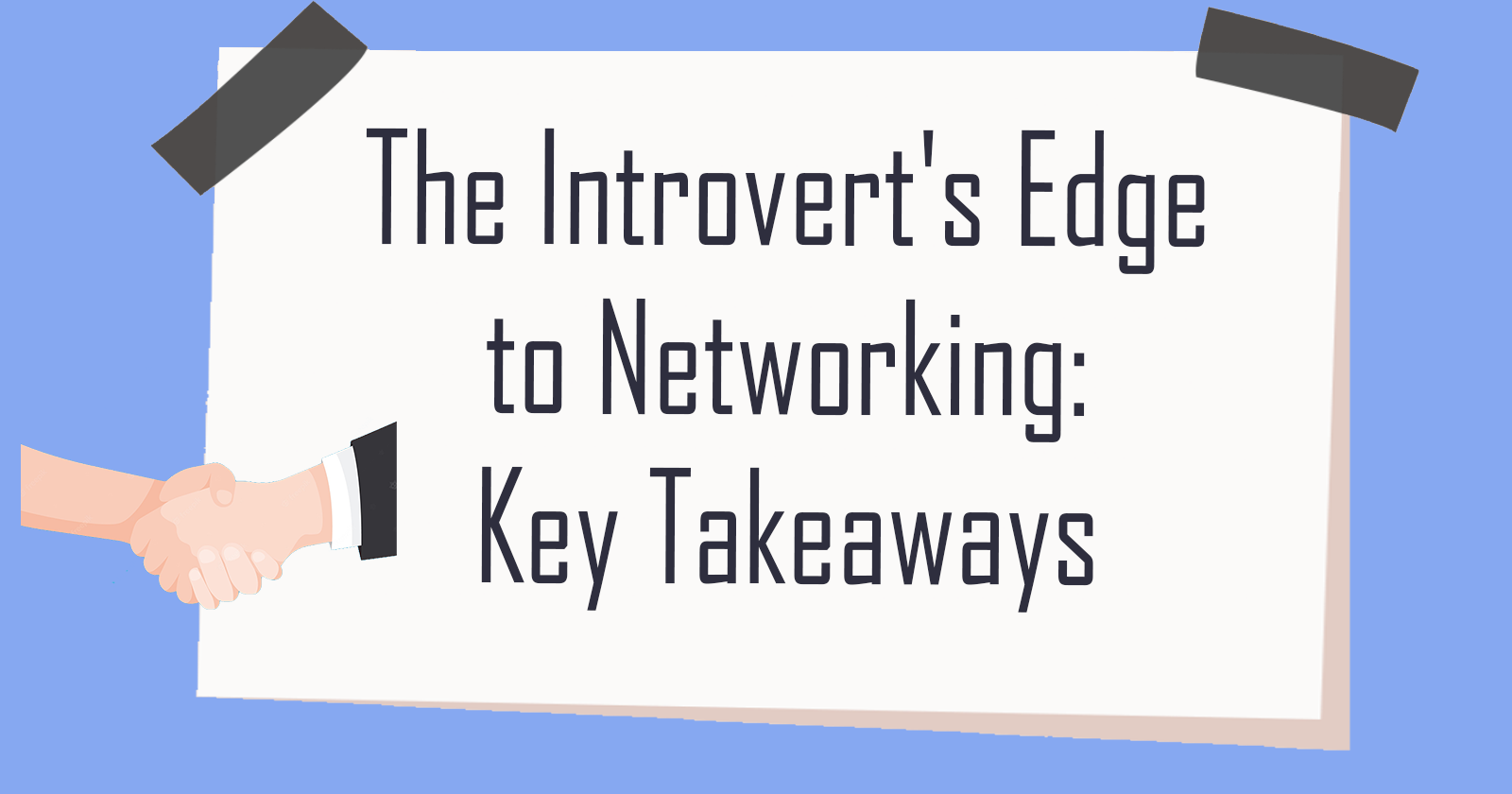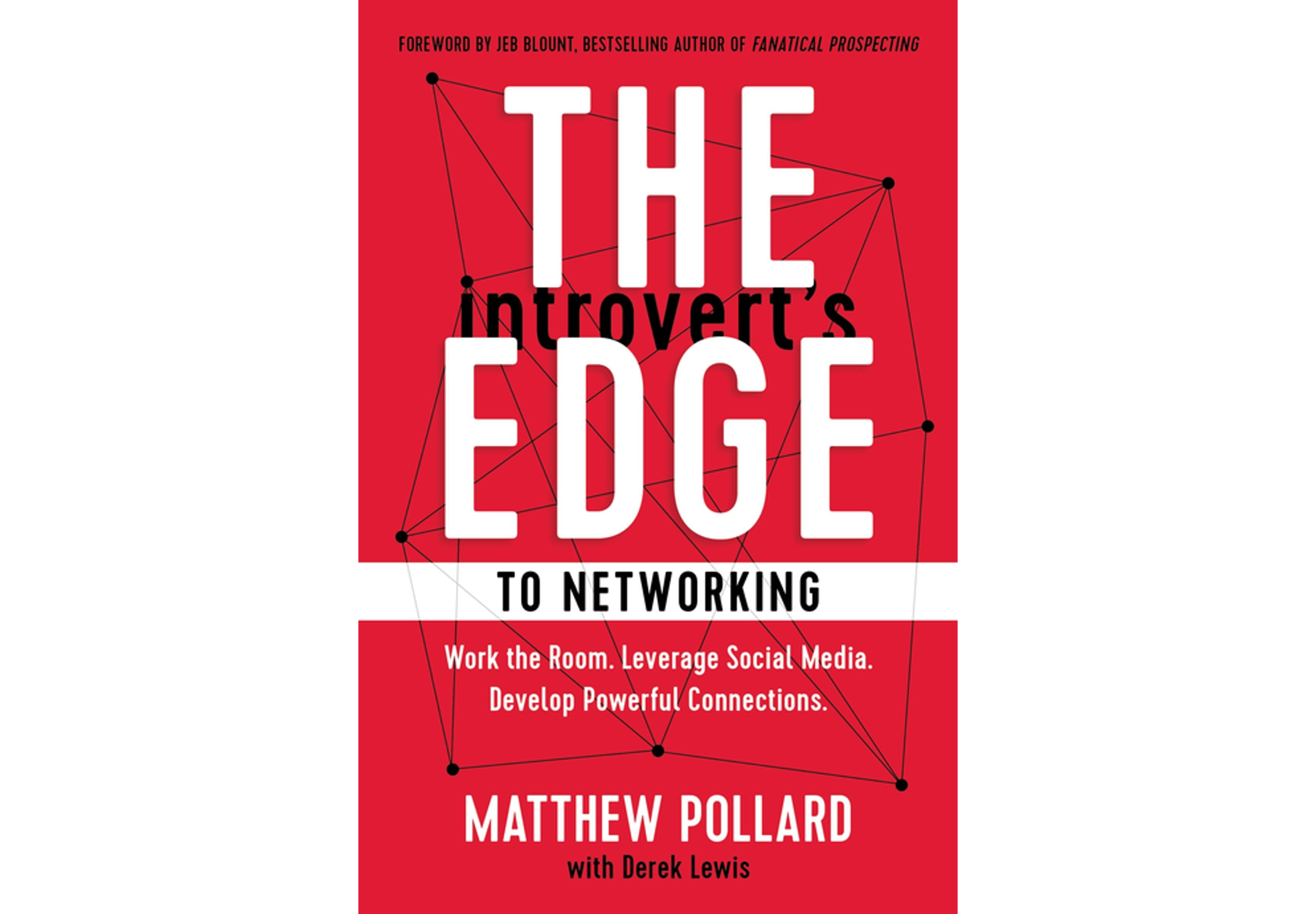The Introvert's Edge to Networking: Key Takeaways
My review + summary of the book "The Introvert's Edge to Networking" by Matthew Pollard

Networking is an essential skill for any professional, in any industry. As an introvert, the word "networking" is intimidating, mostly because I am not familiar with the how-tos of networking.
This weekend, hoping to crack the networking code, I read "The Introvert's Edge to Networking: Work the Room. Leverage Social Media. Develop Powerful Connections" by Matthew Pollard. In this article, I shall summarize my key takeaways from this book.

1. Preparation is Key
Most of us would think that those who are good at networking are those who are great conversationalists or the most charismatic person in the room. However, as introverts, we don't have to pretend to be confident, charismatic or a smooth-talker.
“90 percent of network success (at least the way I do it) happens outside the room. - Matthew Pollard”
One of our greatest assets is our listening skills, so we can focus on being active listeners in the conversations. So now the question is: how do we be active listeners?
Good active listening requires thorough preparation and research. These are a few research /prepare points to start:
- What is the niche of the event? Who will be there?
- Research if there's anyone specific you want to connect with
- Can I start connecting with them beforehand on LinkedIn or online?
- Prepare how will you introduce yourself to others (what's your personal brand, passion, why are you here, etc.)
- Prepare questions you want to ask from the people in the room (a generic list of questions at the top of your head to help you if you are stuck)
2. Be a Storyteller

Statistics have showed that people will be 22 times more likely to remember information when they are presented as stories than plain facts. So if you want people to walk out of the room remembering you, then you need to be an effective storyteller.
But no, you don't have to tell an outlandish or dramatic story to be memorable.
You just have to present yourself with an authentic story about yourself. Such as:
- How you came into the industry
- How you discovered this networking event
- How this became your passion
- Anything interesting about you
Practice telling stories to the people around you, and it will be a great tool for you in your next networking session.
3. Focus on Connections not Sales
Most of us may view networking as an event to sell ourselves. A lot of people tend to brag about themselves in these events. They focus on the conversations about what they do and what networking can do for them.

As introverts, we are not very good at bragging about ourselves or even talking about ourselves that much. In this book, Matthew said that networking does not have to be about selling oneself. Rather, it is about forming genuine connections, which can lead to opportunities.
So focus on being genuinely interested in another person and thinking about what value you can provide to them. Think about how to establish long-term relationships instead of short-term ones.
Also, remember to follow-up with them after the networking session. This is a step that most of us forgets. The conversations do not stop after the event is over. It has to be continued through follow-up conversations to build that long-term relationship.
What I like about this book is that it contains a lot of scripts and examples which you can use to practice. Here's an example follow-up script:
“[Name], it was great to meet you yesterday, and I’m so pleased you found my guidance helpful. I greatly look forward to helping you further during our call on [date, time]. I’ll also follow this email with a calendar invitation. If you have some spare time between now and then, I’d highly recommend checking out the below post/video/podcast interview: [Link goes here.] [Briefly explain what it will help them with—this should not be anything promotional in nature.] I think you’ll get a ton of value from it. I look forward to speaking with you soon. [Follow up with your calendar invitation.]”
4. Disengagement Tactics
This is a common networking mistake. Talking too long to one person. It is hard and awkward to just exit the conversation. So how do we politely say that we want to leave the conversation?
The script that the book provides has the answer:
“[Name], I’m really enjoying this conversation; however, I don’t want to monopolize your time if you have other people you need to chat with. How about I reach out via email to schedule a lunch or a coffee? Would that be something you’d be open to?”
The key to this approach is that we want to respect that other party's time as well. Obviously, they are also here to network and not spend all their time to talk to you. So if you feel the conversation is getting to a part where it is good to move on and introduce yourself to another person, then you may respectfully tell them you do not want to monopolize their time.
You may also thank them for their time and proceed to meet other people. Knowing how to disengage is as important as engaging in a conversation. Practice the script, add in your own words and make it as natural as possible.
Conclusion
This book was a great read to learn some systematic and practical approaches to networking. If you are an introvert or someone who is intimidated by the word 'networking', I recommend this book.
Thank you for reading! I hope you have found this summary of key takeaways helpful and that it motivates you to read more about this topic. Feel free to like and share this article. If you have any good books to recommend, feel free to comment below. Cheers!




